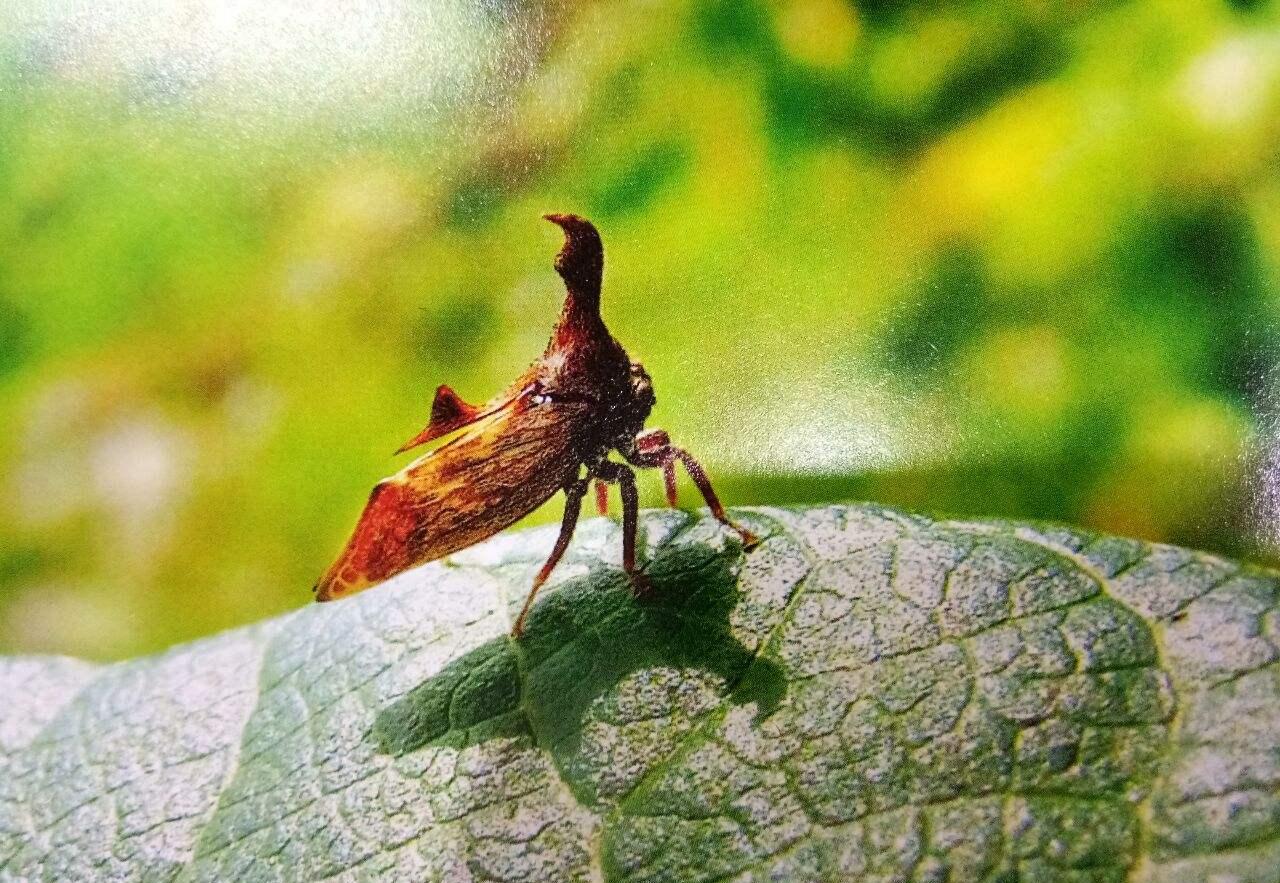Year after year, the hot summer is here again. Have you heard the voice of "know, know, know" again, yes, you know? I think everyone caught cicadas and picked up cicada shells when they were young. Today's talk is also related to cicadas, which are called "horned cicadas".

Hook-crowned horned cicada
Horned cicadas are aceroptera, nearly 2,600 species. There are about 150 species in China, mainly distributed in the southern region, especially in Sichuan, Guangdong and Fujian provinces, and the chance of small partners in the northern region to see horned cicadas is relatively small. You will ask, I have not encountered horned cicadas in Fujian, because they are only 2-20 mm long, strange in shape, generally black or brown, and can imitate dead leaves, so it is not easy to find them.
White-striped curved horned cicada
The reason why they are called horned cicadas is that their front chest and back are extremely developed, with various deformities and protrusions, often covering the middle chest or abdomen, which is very peculiar. Like cicadas, horned cicadas are not beneficial insects.
High-crowned horned cicada
For horned cicadas, the most ideal living environment is forested areas, especially some fruit forests. Living in these places has two major benefits for horned cicadas:
One is that they can get enough food to suck the sap of trees or fruits; the other is that it is conducive to their survival, because the horned cicadas can disguise themselves as a dead leaf, so that when they attach to the trunk, even the sharpest-eyed predators will find it.
Round trichocephalic cicada
In addition, the horned cicada and the ant have also formed a relationship of "wolf for adultery". After sucking the sap of the tree, the horned cicada also excludes a part of the body. The sap discharged by the horned cicada will have a more obvious sweetness and the feeling of breeding honey. This is the most favorite food for ants.
Anchor horned cicada
Therefore, in order to obtain the "honey" of the horned cicada, the ants will also take on the task of protecting the horned cicada. Don't underestimate these ant guards, in the world of bugs, a group of ants is very powerful.
Double-leaf tower crown horned cicada
Horned cicadas, however, are not good birds for trees. In folklore, they are typical pests, also known as "stingrays", and like aphids and aphids, they are one of the most hated insects by fruit growers
Double-leaf tower crown horned cicada (
There are many kinds of horned cicadas, each with its own strange shape of "helmet", let's see their peculiarity.
Horned cicadas
Horned cicadas can be seen on any continent except Antarctica.
Brazilian horned cicada
Spiny trichocephalic cicada
Of course, there are also many horned cicadas that can't be named.
Horned cicadas
Many people believe that the "helmet" of the horned cicada is completely imitating the surrounding environment, either to blend into the environment without being detected, or to warn predators to stay away from them, and the horned cicada in the shape of a wasp on the head may be to deter predators, but whether the helmet has other uses, researchers can not be sure.